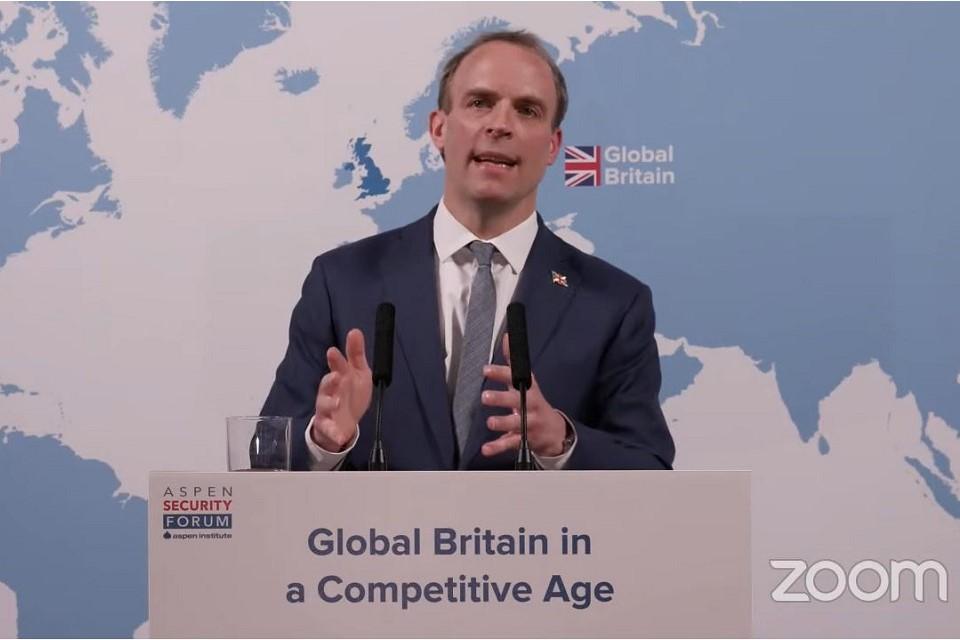Democracy is in retreat in the world as tyrannical regimes accumulate more economic prowess than free countries, Britain’s Foreign Secretary Dominic Raab warned on Wednesday.
“Just take a second to think about what that means,” he said.
“Tyranny is richer than freedom. And that matters to us here at home because we know stable, freedom-respecting, democracies are much less likely to go to war, to house terrorists, or to trigger large-scale flows of immigration.”

Though the Review still sees Russia as the top security threat, China is now seen as the primary threat to economic security and as a long-term “systemic competitor.”
The review says that the UK will invest in enhanced “China-facing capabilities,” and improve its response to “the systemic challenge that it poses to our security, prosperity and values—and those of our allies and partners.”
Raab said that Britain “will adapt our defence posture to the new shift in the balance of world power towards the Indo-Pacific region.”
“You’ll begin to see that this year,” he said, citing the upcoming deployment of the Royal Navy aircraft carrier HMS Queen Elizabeth to the Pacific later this year.

He said Britain identifies “with those countries lining the South China Sea whose legitimate claims have come under recent threat from China.”
Raab also said Britain “took the bold step to issue an invitation to this country to the people of Hong Kong, oppressed by Beijing.”
“Of course, we embrace the power of the market and we value our trade with China. But we will also develop new partnerships with existing allies, and other High Trust Vendors,” Raab said in apparent reference to the UK’s past reliance on Chinese telecom giant Huawei.
“We will work with the likes of Estonia and Norway, India and Israel, Singapore and South Korea, and many others, to diversify our supply chains from manufacturing to tech, to shore up our economic resilience,” said Raab.





